Through $5M funding by the U.S. National Science Foundation (NSF) and $3.75M funding by the Natural Sciences and Engineering Research Council of Canada (NSERC), the University of Utah and University of Calgary will establish and co-lead the U.S.-Canada Center on Climate-Resilient Western Interconnected Grid.
The Western Interconnected Grid, commonly known as “the Western Interconnection,” is one of the two major interconnected power grids in North America, which stretches from the northern edge of British Columbia, Canada to the border of Baja, Mexico, and from the California coast to the Rockies, and serves roughly 80 million people over 1.8 million square miles across two Canadian provinces and fourteen western states in the United States. The Western Interconnection is the backbone of one of the largest regional economic engines in the world.
Masood Parvania, associate professor of Electrical and Computer Engineering at the University of Utah’s John and Marcia Price College of Engineering will co-lead the center along with Hamid Zareipour, professor of Electrical and Software Engineering at the University of Calgary’s Schulich School Engineering.
“Our center is being established at a critical time when the region is experiencing more frequent and severe extreme weather disturbances such as wildfires, heatwaves, drought, and flooding, the impacts of which not only pose threats to human health and the environment but also affect the ability of the western interconnection to continue powering the communities,” says Parvania.
At the University of Utah, the center involves co-principal investigators Valerio Pascucci, professor at the Scientific Computing and Imaging Institute and Kahlert School of Computing, William Andregg, director of the Wilkes Center for Climate Science and Policy, and Divya Chandrasekhar, associate professor in the Department of City and Metropolitan Planning in the College of Architecture and Planning, among multiple other partners and faculty.
The U.S.-Canada Center on Climate-Resilient Western Interconnected Grid creates an interdisciplinary and international partnership that brings together leading experts in power engineering, climate, forestry, data, policy, and social sciences, as well as industry, entrepreneurs and community knowledge holders from a network of 35 partners across academia, industry, government, and communities with the mission of enhancing the power grid resilience to the rising frequency, intensity, and duration of extreme weather events, such as wildfires and heatwaves.
The academic members of the center include the University of Utah, University of California San Diego’s WIFIRE lab, University of New Mexico, and Desert Research Institute in the U.S., as well as University of Calgary, University of British Columbia, University of British Columbia Okanagan Campus, University of Alberta, University of Saskatchewan, University of Regina and Thompson Rivers University in Canada .
“The Center will work closely with the various communities that are served by the western interconnection, which include some of the most densely populated cities in the world, as well as remote and rural areas with minimal power infrastructure. Establishing a comprehensive understanding of the unique needs of these communities is necessary to develop effective climate-resilience strategies,” says Zareipour.
“The U.S.-Canada Center taps into the expertise of multiple world-renowned institutes and centers at the University of Utah, including the Scientific Computing and Imaging (SCI) Institute, the Wilkes Center for Climate Science and Policy, and the Energy and Power Innovation Center (EPIC). Collectively, these resources can facilitate the resilience of critical power grid infrastructure against extreme conditions. This center solidifies the University of Utah’s leadership in power grid resilience research and technology innovation,” says Erin Rothwell, the University of Utah’s Vice President for Research.
The center will develop customized models for risk quantification and forecasting of regional extreme climate disturbances and will build a cyberinfrastructure for collecting and sharing both climate and grid data among the Western Interconnection’s stakeholders.
“The center will showcase a new international innovation ecosystem for rapid transformation of use-inspired research into technologies with global applications to overcome common challenges posed by the extreme weather events. This is a mission-critical process aimed at safeguarding the future of our energy infrastructure and, by extension, communities across North America and beyond,” says Mostafa Farrokhabadi, assistant professor of Electrical and Software Engineering at the University of Calgary’s Schulich School Engineering, and the Chair of the Innovation Ecosystem for the U.S.-Canada Center.
The center will engage community knowledge holders, build awareness, inspire policy, and develop workforce capacity by providing education and training opportunities for diverse groups of graduate and undergraduate students, postdoctoral scholars, high school students, and professionals to develop the human elements of modern, resilient power grids.
###
About the John and Marcia Price College of Engineering
The University of Utah’s John and Marcia Price College of Engineering is the premier educational institution in Utah for computer science and engineering as well as one of the top engineering schools in the nation. Each year, the College graduates more than 1,300 students from seven engineering disciplines and gives them the skills they need to succeed in the growing technology market. With world-class faculty and facilities, the College is dedicated to pioneering research that benefits the world. Learn more at price.utah.edu.
About the University of Calgary
UCalgary is Canada’s entrepreneurial university, located in Canada’s most enterprising city. It is a top research university and one of the highest-ranked universities of its age. Founded in 1966, its 35,000 students experience an innovative learning environment, made rich by research, hands-on experiences and entrepreneurial thinking. It is Canada’s leader in the creation of start-ups. Start something today at the University of Calgary.
For more information, visit ucalgary.ca. Stay up to date with UCalgary news headlines on Twitter @UCalgary. For access to UCalgary news releases, images and b-roll, and details on faculties and how to reach experts, check out our newsroom at ucalgary.ca/newsroom.

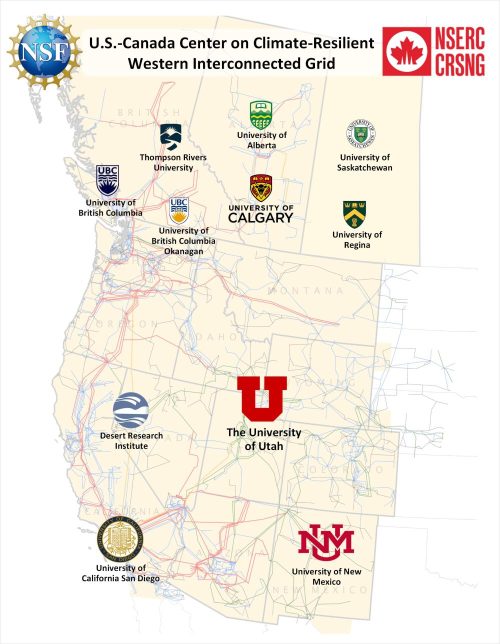















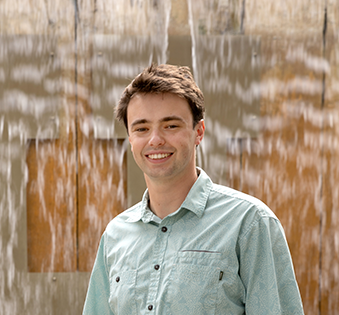
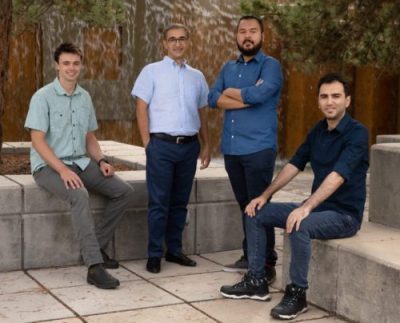


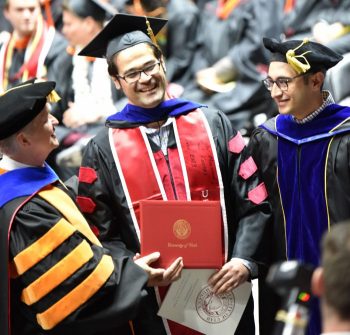
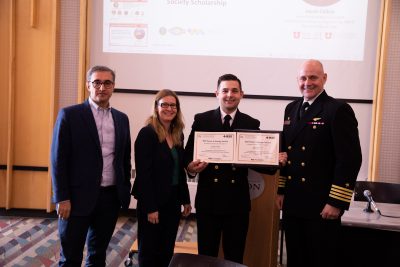
You must be logged in to post a comment.